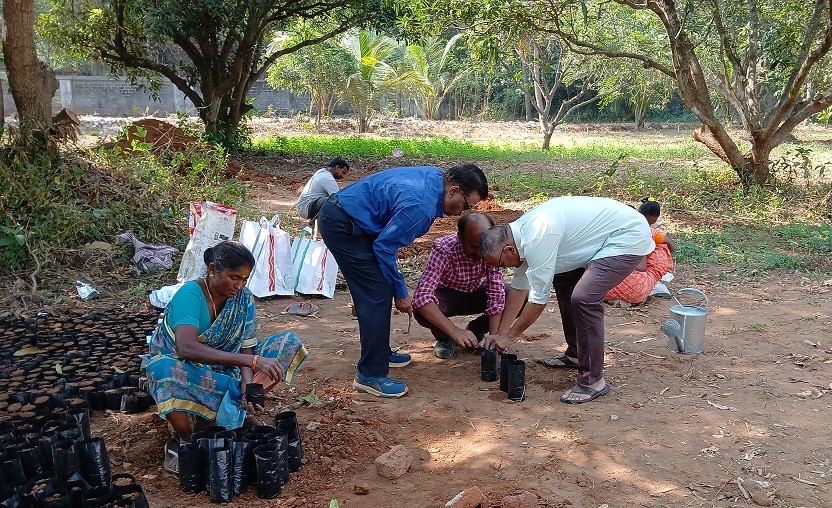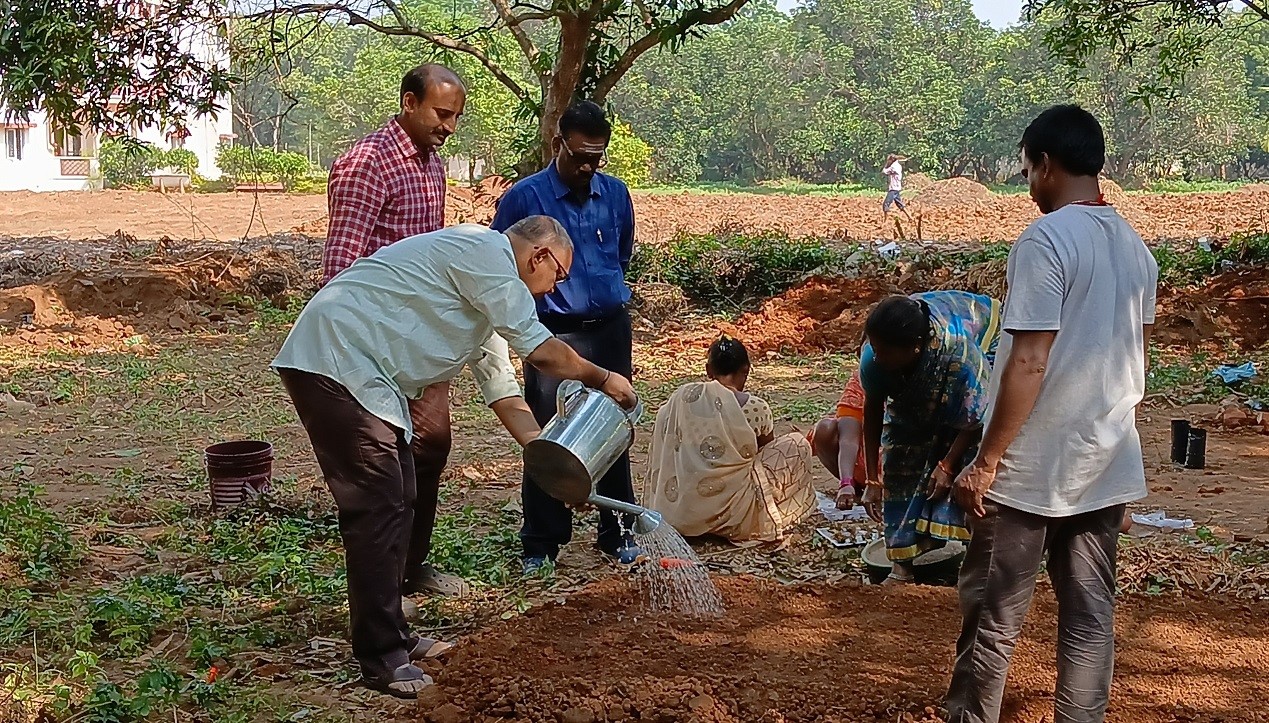MVGR Sets New Benchmark in Sustainability with Organic Kitchen Garden Initiative
Vizianagaram, Nov. 21, 2024 – In a remarkable move towards sustainability and innovation, Maharaj Vijayaram Gajapathi Raj College of Engineering (MVGR) has taken a step beyond academics to address a pressing need for healthy and hygienic food on campus. The institution has launched an organic kitchen garden within its premises to supply fresh, pesticide-free vegetables to the college's hostels and canteen.
MVGR, which accommodates nearly 1,000 students in its hostels and serves an equal number of day scholars and staff members at its canteen, recognized the growing need for quality food resources. To address this, the college allocated approximately 2.5 acres of unused land near the boys' hostel for the kitchen garden project, under the banner of “Organic Farming.” This initiative reflects the institution’s commitment to sustainability and self-reliance.
The inauguration of the vegetable seedling sowing ceremony was conducted by the esteemed Director, Professor P. Sitharama Raju garu, on November 18, 2024. The event saw active participation from key faculty members, including Prof. GVSSN Sanyasi Raju from the MBA Department and Dr. B. Madhav Varma, Associate Professor from the Department of Mechanical Engineering. Dr. Varma, an experienced organic farming practitioner, will lead the initiative alongside Prof. Raju.
“Our vision goes beyond academics,” said Director P. Sitharama Raju during the inauguration. “With this organic farming initiative, we aim to provide our students and staff with the freshest produce while promoting sustainable practices that benefit the environment.”
The pilot project will focus on cultivating a range of vegetables using eco-friendly techniques, ensuring the produce is free from chemical fertilizers and pesticides. If successful, MVGR plans to expand the initiative to include more areas and crops, further embedding the culture of sustainability into campus life.
This bold step by MVGR exemplifies how educational institutions can lead by example, integrating innovative approaches that address real-world challenges while fostering a deeper connection to nature and health among their stakeholders.

